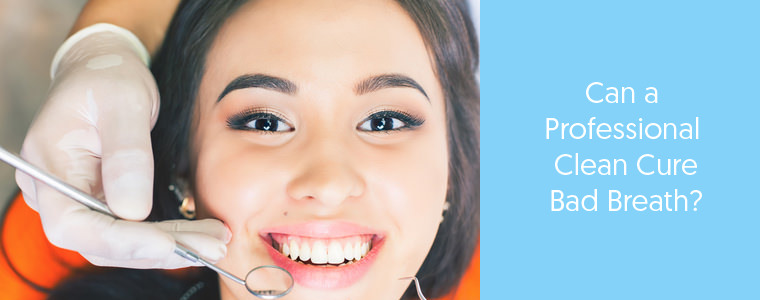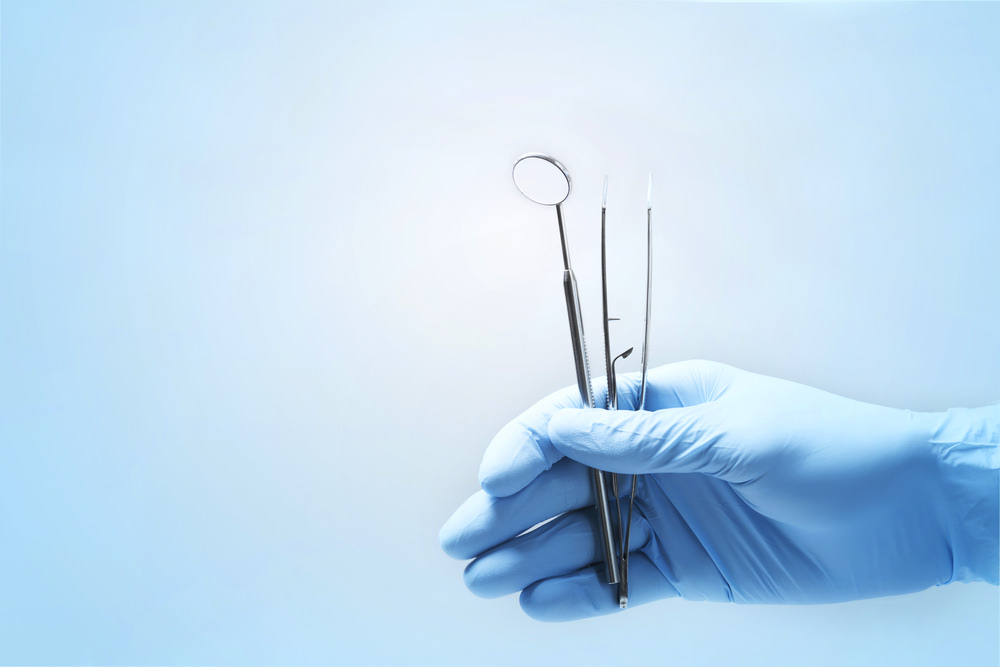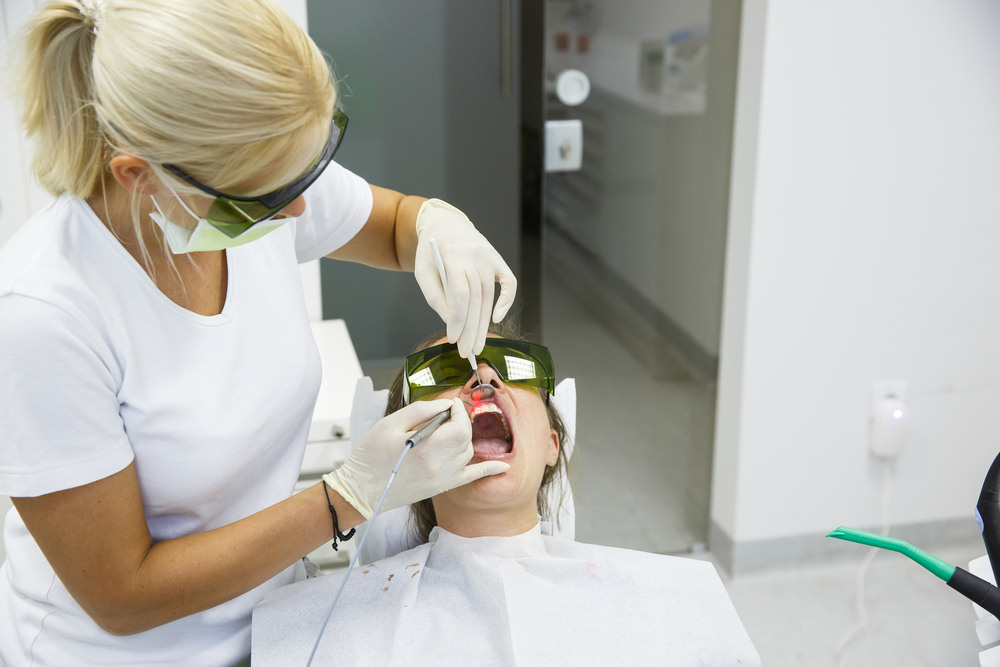Does Teeth Cleaning Remove Bad Breath?
Halitosis aka Bad Breath – tends to be a common, but usually a simple and preventable condition.
So, should we get our teeth cleaned more regularly to stop this condition from occurring?
The answer is yes – teeth cleaning helps remove bad breath.
Regular dental visits are important to help ensure the health of your teeth and gums, remove the build-up of any plaque and tartar and polish your teeth.
It has also been proven that your oral health and your overall health are very closely related – therefore, regular teeth cleaning not only helps you leave with healthy breath but also a far healthier outlook on your life in total.
What is Bad Breath?
Bad breath – also known as Halitosis – is an unpleasant odour of the mouth.
It is a very common problem that affects many people, either on certain occasions only, or it may be a persistent condition.
Symptoms include an unpleasant smell or taste in your mouth, a dry mouth, or a white coating on your tongue.
Can a Dentist Help with Bad Breath?
Yes!!
Even if you have a good oral hygiene routine, getting a professional clean from your dentist helps keep your mouth clean, healthier and odour free.
Your dentist may also be able to identify if there is a cause behind the halitosis that requires a treatment other than cleaning and helps you to develop a treatment plan for it.
14 Common Reasons for Bad Breath
There are a lot of reasons for Halitosis (bad breath). Here are 14 we’ve found;
- Food and drinks such as garlic, onions, curry, coffee, or a low-carbohydrate diet
- Tobacco products (smoking)
- Poor dental hygiene – not brushing or flossing your teeth regularly, which will cause food particles to get stuck in your mouth and rot, and also cause a build-up of plaque
- Health problems – sinus infections, pneumonia, sore throat, cold or flu, tonsil stones, thrush, bronchitis, lactose intolerance
- Oral infections – cavities, gum diseases (periodontal), gingivitis, impacted teeth
- Dental problems
- Medications – antihistamines, diuretics
- Diseases – acid reflux (gastroesophageal reflux disease/GERD), diabetes, liver/kidney diseases
- Allergies – many medications used to treat allergies can cause a dry mouth, which can cause halitosis
- What is commonly known as “morning breath”
- Pregnancy – nausea, morning sickness, hormonal changes, dehydration and dietary changes may cause halitosis
- Objects stuck in your nose (this generally tends to happen to children)
- Alcoholism
- Large doses of vitamin supplements
How Important is Professional Teeth Cleaning?
Professional cleaning is very important to help maintain the health of your teeth and gums, which then helps to prevent a build-up of diseases in the rest of your body.
The clean does what you cannot – gives your teeth that thorough clean, as well as check for potential diseases.
This stops bacteria, helps to prevent a build-up of plaque and tartar and reduces the risk of gum disease or tooth decay.
Tartar, unlike plaque, can also only be removed in a dentist’s office.
Finally, a polish will help you leave your dentist with a smile!
How Many Times a Year Should you have your Teeth Professionally Cleaned?
Even if you have a good oral hygiene routine and a healthy mouth, you should still have your teeth professionally cleaned twice a year.
After all, if you have private health insurance, this should cover both cleanings, so you may as well take full advantage of it!
How do I Keep my Teeth Clean Longer after a Professional Clean?
Most importantly, ensure you keep up a good, regular at-home oral hygiene regime, but there are also some other tips that can help you along the way. These include;
Tips to Help Keep Your Teeth Clean
- Ensure you brush your teeth twice daily, with an antibacterial toothpaste
- Ensure you also brush your tongue to remove any odour causing bacteria
- Floss to remove the food remnants and plaque on teeth, bridgework and implants
- Keep your mouth moist by drinking water, chewing sugar-free gum, or fresh mint or parsley
- If you are a smoker, try quitting smoking
- Limit your intakes of alcohol or soft drinks
- Have a teeth-friendly diet (this includes an intake of more nuts, fruits, cheese, chicken and vegetables)
What Happens Over Time if you Don’t Clean your Teeth?
There is a close link between your oral health and overall health.
Not brushing your teeth can not only affect your hygiene, but it can also lead to a serious collapse in your health. Issues include;
1# Periodontal disease and bone loss – In addition to cavities, you can get a more serious periodontal disease from not brushing your teeth. The bacteria in your mouth produces enzymes which, over time, really start to eat your bone, and as you develop periodontal disease, this creates more bacteria, leading more bone to be eaten, creating a vicious cycle
2# Diabetes – Studies have shown there is an association between periodontitis (inflammation/infection of the gums – often a result of poor oral hygiene) and diabetes
3# Heart disease – The bacteria in your mouth when you do not brush your teeth gets into your bloodstream, and can affect your body’s ability to fight diseases such as heart disease, stroke and Alzheimer’s
4# Bad breath – It goes without saying that, if you do not brush your teeth, the plaque in your mouth will thrive. However, leave it long enough and this may harden into calculus, which can only be removed by a dental professional
5# Gingivitis – Inflammation, swelling and bleeding of the gums. Not pretty. Over time this can also lead to something much worse, the dreaded periodontal disease
6# Enamel Decay – The enamel coating on your teeth is needed to protect them against the outer world – take good care of it
7# Stained teeth – It also goes without saying that, if you do not brush your teeth, whenever you eat or drink things that have darker pigments (such as coffee, tea, or wine), you will not be brushing off any of the stains they leave on your teeth
8# Stroke – The affect the bacteria in the plaque has on the bloodstream can cause a lack of oxygen in the heart or brain… take care of that plaque by brushing your teeth
• Premature birth – Gum disease has known to result in premature birth and a low birth weight
Is Listerine Good for Bad Breath?
Listerine is good for your breath, albeit temporarily.
What the mouthwash does is help to kill any bad breath causing odours, and this may cover any bad breath odours for a limited period of time.
However, what it does not do is treat the underlying cause of the issue of the bad breath, therefore it is not solving the problem and the odour will return within a short amount of time.
How Can I Fix Bad Breath Fast?
8 home remedies for intermittent halitosis include;
- If you wear dentures, take them out at night time and give them a good clean to remove any bacteria
- Keep your mouth moist at all times – drink plenty of water, chew sugar-free gum, fresh mint or parsley
- Scrape your tongue each morning with a tongue scraper, or, if you do not have one, a spoon – this helps to decrease the bacteria and dead cells that can cause the odour
- Chew a handful of cloves – they have antiseptic qualities that help fight the bad bacteria
- Chew a piece of lemon or orange rind (ensure you wash the rind well beforehand) – the citric acid in these fruits will help stimulate your salivary glands, which will help fight halitosis
- Try making your own alcohol-free mouthwash remedy. Mix a cup of water, a teaspoon of baking soda and a few drops of peppermint essential oil. Be careful not to swallow!
- Eat a lot of apples, carrots, celery or nuts
- Eat probiotic foods such as yoghurt
Conclusion
Halitosis – or bad breath – is a common condition, one that may affect you at times either temporarily or on a continuous basis.
It can be quite embarrassing, as its most common symptom is an unpleasant smell, although others include a taste in your mouth, a dry mouth, or a white coating on your tongue.
A very worthwhile and not often enough used treatment for this condition is visiting your dentist for a regular teeth clean.
Professional cleaning helps to keep your teeth and gums in a healthy state, and, seeing as there is a close alignment between oral and overall health, this helps to prevent an occurrence of other diseases.
The dental clean will reduce bacteria, remove a build-up of plaque and tartar, and reduce the risk of gum disease or tooth decay.
In the meantime, create yourself a healthy at home oral care regime.
Things like brushing your teeth twice daily, brushing your tongue, flossing on a regular basis, using mouthwash, drinking water, chewing sugar-free gum, fresh mint or parsley.
Having a teeth-friendly diet also helps greatly (this includes an intake of more nuts, fruits, cheese, chicken and vegetables, and limiting the intake of alcohol, soft drinks or cigarettes).
Follow these points mentioned above and your breath will be much fresher!
Have you noticed a fresher breath after a professional teeth clean by your dentist or hygienist?
By Dr. V
Created at April 23, 2019, Updated at January 25, 2025





